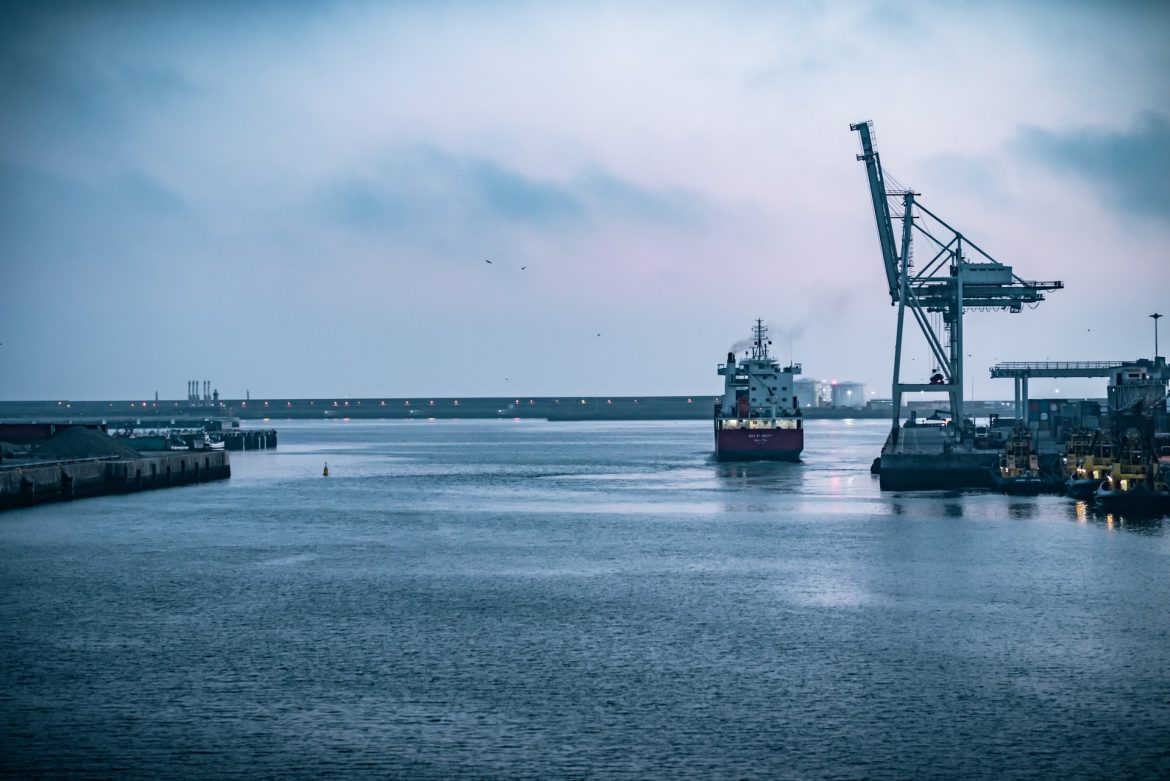Whatever sector you work in, there is a high chance your chosen industry is supported by the maritime industry in some way, shape or form. From ship management to cargo transportation, there are a number of important services and marine-centric solutions implemented by the maritime sector that contribute to the global economy. Of these services, marine engineering is of particular importance. After all, the profession is all about designing, building and manufacturing the vessels that transport our goods, including food, luxury items and even oil. It goes without saying that without marine engineering, global supply chains and the economy those chains support would collapse.
Marine engineering is about more than designing and building purpose-built vessels for the maritime sector. In fact, it plays a crucial role in global supply chains – so, what is marine engineering? And why it is such an important component of the worldwide economy?
What is marine engineering?
As the name suggests, marine engineering is the study, design and maintenance of maritime vessels. Typically, the primary concerns of marine engineering are the designing and building of any type of vessels such as bulk carriers or cruise ships. This work is often completed from an office, or at sea if testing or maintenance is needed.
marine project management is the implementation of specific tools, techniques, skills and knowledge within the marine industry. Due to the complicated and complex nature of marine services, project management is a crucial component of the maritime industry and ensures continuity in the sector’s day-to-day operations.
When it comes to building a new vessel or converting an existing one, marine engineering and consultancy services usually include:
- Concept design – Of course, before the vessel itself can be built, the process always starts with concept design, calculations and a review of regulations.
- Project management – As the name suggests, project management is the implementation of skills, techniques and specialist tools for the purpose of managing a project efficiently and effectively. Marine engineering requires stringent project management from start to finish, including the management of reactivation and dry-docking as well as any major repairs and conversions if needed.
- Conversion services – If you already have a vessel built but would like to convert or transform it in some way, you’ll be needing conversion services. This usually entails feasibility studies as well as the preparation of design specifications including an assessment of suitable shipyards.
- Naval architecture – Marine engineering also includes a degree of naval architectural processes, including stability and longitudinal strength analysis, incline and lightweight surveys, the development of hull maintenance strategies and stability book updates. It’s also important to assess the impact of new legislation on the existing tonnage.
- Mechanical engineering – Marine engineering isn’t the only kind of engineering that is utilised during a vessel build/rebuild. Mechanical engineering is also a crucial component of any marine project and is often utilised in the system design and modification process as well as piping, waste heat recovery and heat transfer calculations. Mechanical engineers are also important for any machinery upgrades, noise and/or vibration damping and 3D modelling.
- Structural engineering – For the vessel infrastructure itself, structural engineering is a crucial component. Structural engineers also perform sea-fastening calculations, a combination of local and global FEA studies (Finite Element Analysis) and 3D modelling. It is also the job of the structural engineer to investigate any cracks or damage to the vessel.
- Electrical engineering – For any electricity requirements or wiring needed for the vessel, an electrical engineer will take care of single line and wiring termination diagrams, cable routing and the design of the switchboard. Electrical engineers also plan for load schedules including preparation and management.
- 3D Laser scanning – An alternative to traditional dimensional survey methods, 3D laser scanning allows engineers to efficiently and effectively build a 3D model of any proposed changes or modifications to a vessel. Perhaps most important, 3D modelling ensures there are no clashes with existing infrastructure, machinery or equipment, and is an important component of any vessel conversions or refits.
What else does a marine engineer do?
Marine engineers are also responsible for the operation, continual maintenance and repairs of most vessels, including the management of any mechanical components and other infrastructure onboard. This could be air conditioning, lighting or water distillation, as well as power generation, electricity and other mechanical assets crucial to the operational continuity of the ship.
Although marine engineers usually work within an office environment, they also work offshore and can be often be found onboard an oil rig or other similar offshore structures. This is usually because maintenance or repairs are needed that require technical marine-centric expertise and experience.
Why is marine engineering important?
Marine engineering plays a significant role within the global economy, the supply chain of which relies on ships to ensure continuity in international trade and commerce. The reality is that if the vessels carrying our goods, including food, medicines and other crucial supplies, suddenly stopped working, the economic balance and social cohesion of entire countries could be disrupted and thrown off-kilter.
Many marine engineers also work for and collaborate with local authorities such as councils and government bodies to assist with the development, manufacturing and maintenance of important vessels, such as public ferries, military carriers, submarines and ocean survey vessels. As a result, marine engineering is a crucial component in a country’s urban and military infrastructure.
Final thoughts
Whatever profession you work in, there is a high chance your chosen sector is supported by the maritime industry in some way, shape or form. Marine engineering in particular is a crucial service within the maritime industry itself but is also important in maintaining operational continuity of global supply chains. From the manufacturing of enormous cargo ships to the maintenance and management of gas carriers, the role of marine engineering is an important component in the global economy, as well as within the maritime industry.




